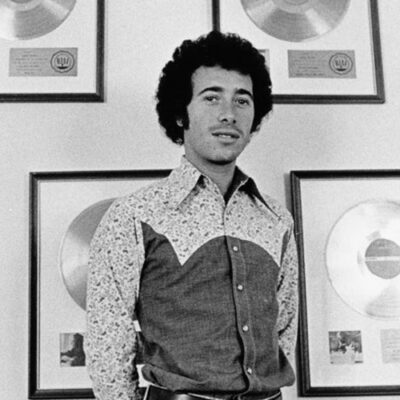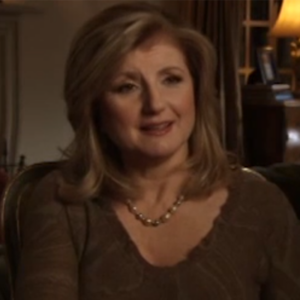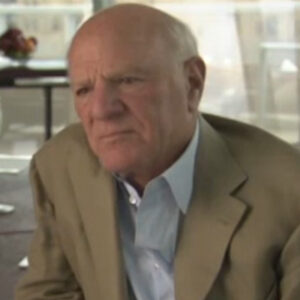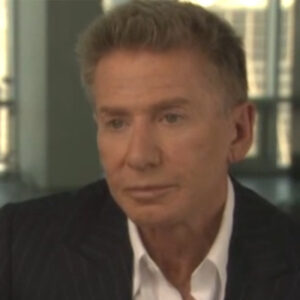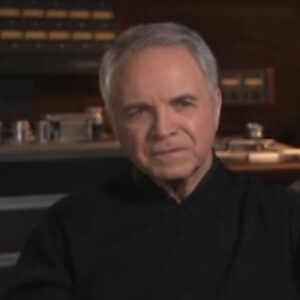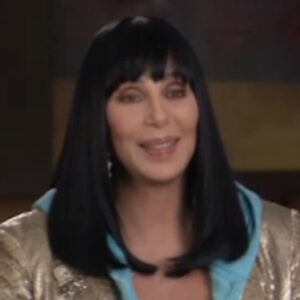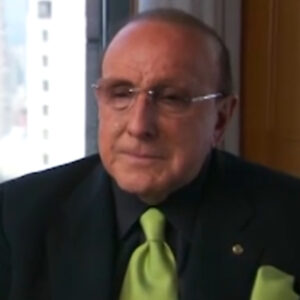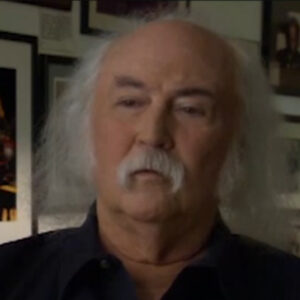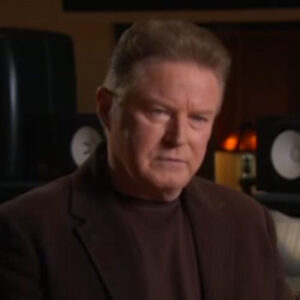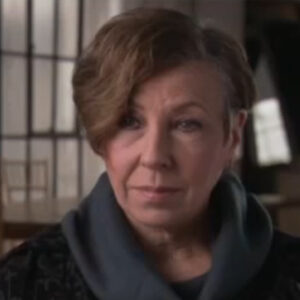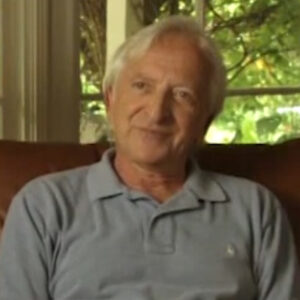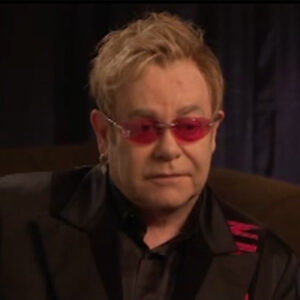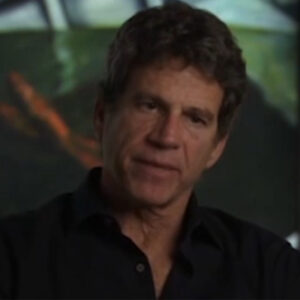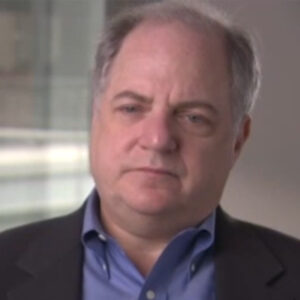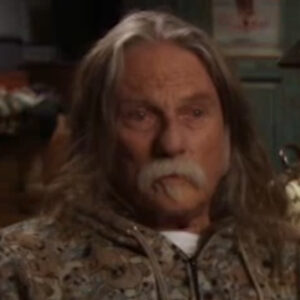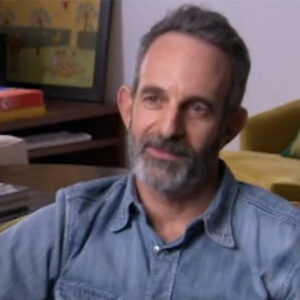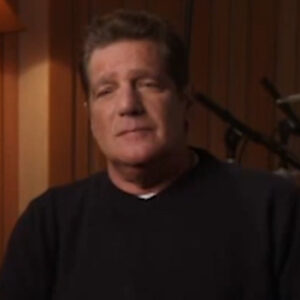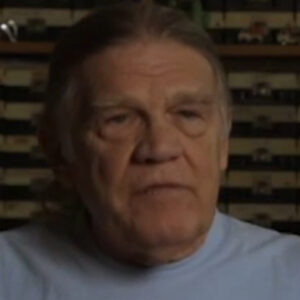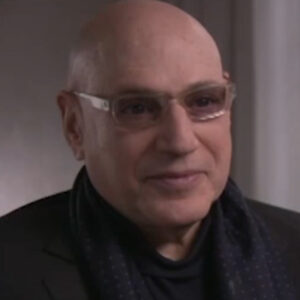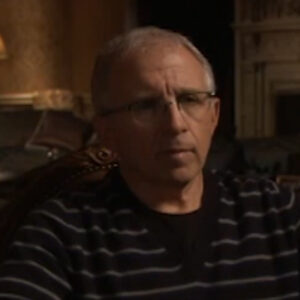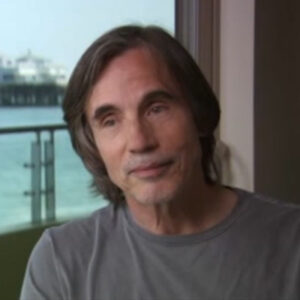Speaker Starting at the beginning, fellas like David Geffen, your first impressions, some of the dates are going to be screwed up around.
Speaker You know, I’m thinking that, Laura, the reason was because of Laura Nyro.
Speaker I was planning to do the Monterey Pop Festival. And just a little background.
Speaker John Phillips, my Mamas and Papas, myself and Paul Simon were going to introduce a new act, and each one of us was going to select the new act. And Laura, after hearing the more than a Discovery album, is the one that I wanted to show in, checking who represents her, etc.. I found it was David at the William Morris Agency, and I was in New York and I met him in New York to discuss the possibility.
Speaker So that would have been February, March, April six or seven, jiving with what I understand. Just David heard about her performance at that. It didn’t go terribly well.
Speaker Yeah. If that’s true, then I have no idea why.
Speaker Madeleine, that’s the only thing I can tell you.
Speaker Which actor Paul Simon interviews.
Speaker Her name was Beverly. When John introduced the group with no name had remained a group of men.
Speaker All right. So anyway, what when you first met David, what were your impressions?
Speaker That it was very young, that he was very small and that he was sort of gregarious, outgoing, you know, quick, whatever.
Speaker I thought an agent might have been the ones that had come in contact with what smart not.
Speaker That’s probably some of that is in retrospect. But I’m thinking back. I thought it was quick. I thought it was very quick and very and ambitious with out trying to hide it. I just I’m going somewhere.
Speaker And here I am. What you see is what you get.
Speaker You know what I mean? Give us a little sense of now.
Speaker Let me ask you a question, because it’s I’m curious. I’m curious as is this a story you get from David that he heard about her performance and then wondered assigned her, no one can save her because he had heard that she had bombed so badly there and she was depressed.
Speaker And I know that’s a little far fetched. I’ve seen the footage. There’s certainly no booing, but there isn’t a plot.
Speaker Oh, no, no. The feeling was that she absolutely bombed. No doubt about that.
Speaker But saving her from why it wasn’t my question. Because she wasn’t successful. It’s not you know, he would. Someone would have to have hurt her album. Thought she had a great career ahead of her and that this was a setback.
Speaker Well, I think that is way. I mean, I think that is how he saw that he was going to hurt. He hurt. She was very depressed because of that soft potential.
Speaker And William Morris at that time did not represent her arty mobile represent as a manager. No, I don’t think she had an agency.
Speaker Okay, we’ll get to the bottom of this.
Speaker If there is one record which you heard David heard as well. I guess somebody played. I think some of them, Steve Bender or Binder, played it for him. One of his chips out here told him that moderate. And he went, oh, he made a point of looking her up when he got back and knocked on her door.
Speaker Can. Oh, a wonderful story. Oh, that’s good.
Speaker I mean, it’s you know, history is told by the last man standing.
Speaker So we’ll see about you and your what you’ve done. You’re legendary. So don’t be insulted by the question that people watching you get a sense you are.
Speaker Big question. How does it start?
Speaker Well, that’s sort of the social aspect. I was dating a girl who turned out to be Herb Alpert’s girlfriend. But I didn’t know Herb Alpert. And he was in the Army at the time. And when he got out of the army, the girl introduced me to her girlfriends for Herbie and I became friends. Herb at that time was having besides an army trumpeter before going into the army.
Speaker And I guess he intended on doing the same thing. After he played bar mitzvahs, he had a little trio. Weddings, bar mitzvahs, birthdays, and not really what he’s told me since. Not really ambitious as far as getting into the music business, but just sort of satisfied it what he was doing. I had written poetry and lyrics and school songs and also had no idea that the music business was something that I should get into.
Speaker But because of those two things of me writing lyrics, him writing music and starting to hang out together, we started writing some songs and cut some demos, demonstration records and found a record company that would listen to him. They hired us as a partner saying amen. And that was the beginning.
Speaker When you’ve been in, you’ve always, always been L-A.
Speaker I came out and when I was 18 months old, I was born in Chicago.
Speaker Describe California in the 60s, the music scene in the 60s, much like in a very behind New York.
Speaker I mean, we were it was a fledging record business, except for the there was Columbia Records, RCA Records, Capitol Records.
Speaker But independence for springing up.
Speaker And that allowed record independent record producers to find a place to have their material for it, as opposed to when those three giants. You sent in a tape and sometimes you heard back. Sometimes you didn’t. But this was you could actually knock on the door, meet somebody that was going to listen to your music and get some kind of feedback. It was much more of a independent orientated business and it allowed for novices to get in as opposed to people that were just music people and became an arm in artists and repertoire. It was the beginning of the independent producer at that particular time. And it was young. It was very it was kitsch. You know, I recorded in 1959, I recorded Jan and Dean and my office was a phone booth on State Beach because they hung out and surfed and played volleyball and all days. So to be near my act, I operated out of a phone booth on State Beach.
Speaker It was much more informal and much more. I recorded Jan and Dean in a garage. You just. You could.
Speaker There were so many ways to open doors as opposed to in New York. There were rules and regulations on how you got into the music business.
Speaker It also seems, from what I’ve read, that your sensibility is so totally different. It’s still kind of in the old days, Steve Martin Rock and Roll was kind of took it by surprise, left a gap to be filled here in California. Do you think.
Speaker Well, you mean as far as being trendy, the rock and roll? Well, I when I first started it, I it was difficult to explain to anybody what I was doing, you know, and most of the music, because you had to find a particular radio station. What are you doing? I’m writing songs. Really. Have I heard any of. Well they’re thinking and the grand old way that of the Tony Bennetts and the Sinatras and all that. And these were these were kids that were recording kids, recording kids, basically. I was in my very early 20s and my act was 16 years old.
Speaker But I think that’s a true evaluation of what was going on at that time. Also, in the early 60s, most of the activity until it started to happen on the West Coast was coming out of Philadelphia. Frankie Avalon and Fabian Bobby. Right. Well, you know, Cameo Parkway, all because of Dick Clark.
Speaker You’ve answered a bunch of these questions so we can tell some of the Monterey Pop Festival your brainchild.
Speaker Not really. I mean, sort of my adopted brainchild because somebody, a promoter that I never Benish Shapiro, who was an agent in Los Angeles, came up with the idea, along with Alan Parisa, who is sort of a friend of rock groups, to do a one day festival in Monterey and mix some blues and with some rock and roll. What they found is the they weren’t getting much reaction to that because they didn’t have a pop headliner. So they came to me and John Phillips to try to book the mommas and pop this as a headliner somewhere along the way at three o’clock in the morning. And John called me and he said, you know, we ought to do this and we ought to do it more than one day. Let’s get together and talk about it. Out of that came a three day festival. We eventually took over the running of the festival. Bennie Shapiro, we paid him for what he had invested because we wanted to make it charitable. Give the money back, so to speak, for the money that we were all making at that time. And it’s a foundation that stays very much alive today.
Speaker We’ve given away millions of dollars because we exist on the ancillaries videos, DVD and tapes that continue to sell and we continue to give all the money away.
Speaker I don’t think it’s it’s the first rock festival excuse me, the first rock charity, first rock festival, first rock charity, and certainly the most successful would imagine historic historic event and on a lot of levels.
Speaker Thank God I was there to record a lot of it.
Speaker If he hadn’t been there with that, if what we heard we heard Kenny.
Speaker Yeah. Wanted to go.
Speaker Well, what happened is if you got a minute. What happened, actually. We were looking for more ways to finance the festival. And we had Barry Diller at that time, was a new executive at ABC Television and had come up with the concept for Movie of the Week. And we went to him to see if we could sell him the idea that this would be a movie of the week. And he liked the idea and they gave us four hundred thousand dollars, too. And that’s what allowed us the seed money to put the festival on. And so it was supposed to be a television show, movie of the week. And there was what was his name? There was a man by the name of Moore who was running ABC at the time, who was a Southern gentleman, a very conservative. And somewhere along the line between Penny Baker and us, we knew that we had something more than a television show. So we brought him the footage of Jimi Hendrix.
Speaker And he said, not on my network. And he gave it back to us. So that’s how it became film. You did that on purpose? Yes, we did it on purpose. And he didn’t respond to Jimi. I think we absolutely did.
Speaker That’s very clever. Well, so talk a little bit about the moment about this and John Phillips relationship that appeared in California.
Speaker Well, what it was, is that he along when when the Beatles came along and and folk artists started to listen to Beatle music and realized that it wasn’t just Frankie Avalon, Fabian, that kind of music, but these guys were writing really some real songs.
Speaker So that, I think was.
Speaker And the fact that Dylan plugged in Newport, opened up the door for folk artists who were real songwriters, real performers not. There was a period in the early 60s where you would make a record and take a voice. And if he was good-Looking, he’d put them on their own and he’d become a star.
Speaker But these were performers and writers and the moms and is all calm, except for Michelle, who was a rock and roll baby. They all came out of folk.
Speaker And I met them in nineteen sixty four.
Speaker They. I was recording Barry McGuire. We just had a hit with Eve of Destruction and they were a friend of his. And he brought them to down to Los Angeles from San Francisco. And they played me five songs during a break. Two of them were California Dreamin and Monday, Monday. It was just John on a 12 string and the other singing.
Speaker And I had a habit of not looking at the act because there were no videos at that time. And I always thought that first impression that people get when they hear it on the radio.
Speaker So I had my head down last night and they sang me the five songs.
Speaker I lifted my head up and I took a look at them and they were coming off of every psychedelic trip you can imagine. They were funky, but beautiful. And the title for their first album came true, if you can believe your eyes and ears, because what I saw and what I was hearing was so amazing.
Speaker But John Phillips, along with Brian Wilson, are probably the best vocal arrangers in the last 50 years since the days of the high lows and those four freshman.
Speaker You encourage that, Barry McGuire, right?
Speaker I did why you encouraged him to write political songs.
Speaker He didn’t write the songs. He sang the song P.F. Sloan and Steve Berry, who were writers from my publishing company. I bet in Not Very McGuire, I first saw Barry McGuire, who was already a singer with the New Christy Minstrels.
Speaker And I was at a place called Suros, which had turned into a rock and roll club on Sunset Boulevard. And at two o’clock, when a close McGuire, who was barefooted and his feet were painted green, started a conga line that went all the way out and down Sunset Boulevard. And his charisma and the fact that I knew he was a singer prompted me to ask P.F. Sloan and Steve Berry to write him something they wrote, even struction. But that was right at the time that Dylan was also plugging in, so to speak.
Speaker And you saw a direction that is just going right. So talk let’s talk about Laura, because it became such a big fight. What happened?
Speaker Well, I did go to New York to try to get Laura that part. I know it’s true. She was she you know, it was California at that time. And a lot of a lot of the world were going psychedelic and hippie, and especially in the San Francisco area. And a lot of the groups that we had were either from England or San Francisco. And they had that look, for the most part, are starting to have that look. And Laura came she had three backup singers that were dressed in long black gowns, and she was in a black dress on black dress, which was totally opposite of what was happening not only on stage, but in the audience at Monterey.
Speaker And she came out with a big band arrangements. And we had very little time, although we had very good musicians from L.A. to rehearse her charts. And the charts weren’t very good. Everything that could possibly go wrong went wrong.
Speaker And it just it wasn’t good there until she sat down at the piano and she sang Poverty Train by herself. And at some point, she always thought she heard boos in the audience. Firstly, wasn’t that kind of an audience that would do you know, they would tolerate it, wouldn’t you? But years later, and putting together what was called the outtakes from Monterey for VH one, Penny Baker and I were going through the tapes and film.
Speaker And what we did hear is somebody saying, Laura, I love you, I love you, I love you, which could have been a tour. It sounded like a booster. And we called her and asked her if she would come in and listen to it. She said she would. And she died before she had a chance to really come in writing.
Speaker Yeah. Oh, I said nice.
Speaker But I explained it to her. I don’t know if that helps, but, you know, that was baggage that she carried for a very, very long time.
Speaker So, I mean, when she did her first line, 30 second album, second and first, then when more than the discovery, different label, New York, somewhere in between there, David became a manager when he became a manager before it before.
Speaker I was just trying to to understand if you know how she went from understanding that the big band thing and the backup singers wasn’t the way to go and that what she should do was singing songs and, you know, different kind of events. David had to do.
Speaker I. I don’t know for sure. I wouldn’t doubt it. I mean, you know, he has a has shown a tremendous insight on what an artist should do and what they should be recording and how should they should be recording. And I imagine those instincts were already formed at that time.
Speaker And I would think if anybody had a chance to explain to. Also, the fact that he immediately became a partner in her publishing company realized that she was as much a songwriter as a singer.
Speaker I don’t doubt that that process took place and that he was the reason for it.
Speaker Did you spend time with them when they were together? Can you comment on that relationship? No, not at all. I mean, you do know they were very, very close.
Speaker He was completely devoted so that you didn’t. You didn’t.
Speaker I think you’ll find that I was around David a lot. I mean, there was a period of time that you’ll get to it in the 70s when we became closer friends and hung out a lot.
Speaker So you don’t know. You can talk about the Carnegie Hall concert, which was sort of a triumph for her. But that was great. You set a good stage. That’s right. It’s an important story. Yes. I think Laura was an amazing artist. I, I wonder I mean, I’m really not trying to overstate the case, but I wonder what would have happened if he hadn’t.
Speaker Well, I started recording her songs with other artists at that point, you know, one of which I did with a group called The Blossom Stony End, which Barbra Streisand heard, and then she recorded stuff. So Laura, at some point he would, David, probably accelerated what happened at some point. If her songs were recorded by enough people. In the case of Carole King, they heard the demos there. Somebody realizes she could sing their songs as well as the people that are singing him. So it may have happened. She was too good of a songwriter for nothing to happen as an artist.
Speaker Tapestry, one of my favorite All-Time Makers. You produced that? Yes. Was that was that Carole King first time that she recorded her own work?
Speaker No. She had a single couple years before.
Speaker Might as well run until September, which was at that time. Those writers, Carole King, Barry Mann, Cynthia Wilde, Howie Greenfield were Neil Sedaka were with a company called Aldon Music, Nevin’s and Kershner, and their demos were so good that quite a few of them turned into records. Curl’s and might as well reign until September, which you wrote for Bobby Vee. I believe she wrote it for he didn’t do it. So it’s put out as a single. She didn’t do an album behind that. In two years before Tapestry, I did an album with her. She buried herself in a group called The City.
Speaker She didn’t want to be a solo artist, but City pretty much showed where Tapestry was going to and the type of songs that she wrote and harmonies and those kinds of things.
Speaker Then there was a period where I went off and did a film and she recorded with her husband, Gerry Goffin, and it was called Carole King Rider.
Speaker That didn’t do very well. And then I produced Tapestry, what you said 71.
Speaker So she wasn’t a singer songwriter movement. Oh, really? Well.
Speaker Well, I don’t know about that because there were singer songwriters in the late 60s like Jackson Browne and Joni Mitchell.
Speaker But I think the singer songwriter and the people that are thought about as a singer are Carole King and James Taylor and for whatever reason.
Speaker But I think that period in 71 is really when the singer songwriter people started calling them singer songwriters.
Speaker I joining me just at the very tail end, 16 hour late, 69 days, I think.
Speaker But even the fact that the Eagles are never considered singer songwriters but handly and frier songwriters to the best.
Speaker Let’s take a listen to you.
Speaker We’ll get as much silent things, but I’d love you if you could kind of set up paint a picture for us of sunset, the kids, the clubs, what was going wild through that which in the, you know, 69 on when you were really the the most activity.
Speaker The most. The energy, the most revolutionary time on this trip was 65, 66, 67.
Speaker The whiskey. Go, go.
Speaker Couple of other clubs in and around that area. At that particular time, you couldn’t walk on the sidewalk down Sunset Boulevard between Ciro’s and Doheny because the sidewalks were packed. Kids coming from all over, not not only, you know, leading up to the Monterey Pop Festival in 67, it was a cultural revolution.
Speaker And on the street, the streets.
Speaker It was what Hollywood Boulevard became as far as cruising. Sunset Boulevard was where they cruise. And in the cars, they had tambourines and hammer rockers. And the entire street was musical.
Speaker And I mean summed up by Stephen Sills, for what it’s worth, it’s basically the anthem of that period was phenomenal. It was just a place to be of any time in history if you wanted to be a part of a cultural revolution. It was easier there. And what happened in England in sixty four or five?
Speaker You’re really good.
Speaker By the way, I’m like I, I’m already seeing this film.
Speaker So it’s just everything was it was a real revolution. And I think music was changing. I think it was about who was hanging out at.
Speaker So one of the manifestations of this cultural revolution took place in microcosm. Can you can you talk about. Can you see who was there and how it worked and how people were interacting music?
Speaker I think the motivation for going to Laurel Canyon was that even though you were, you know, five minutes from the strip, you felt like you were in the country.
Speaker And this isolation from what was going on and a lot of the people that came in, most of them that came in either from the village in New York or from Canada and or northern and the West Coast, North Oregon, Washington areas, San Francisco, not looking for what L.A. was known for, not looking for a Sunset Boulevard and or apartments that kind of urban.
Speaker More of a rural feel. And Laurel Canyon was perfect, you know. Five minutes from all of what was happening.
Speaker And you had that isolation that they were looking for. John Phillips lived there. Denny Doherty from the Mamas and Papas lived there. Obviously, Joni and Crosby, I think, lived there, all of it. It was and it was for the time, the most creative, artistic gathering community anywhere in L.A.. So the I didn’t live there. So I was only privy to what was going on because of John Phillips. So I spent a lot of time with up there. But it I don’t think David lived there either.
Speaker It was a very artistic community, not the people behind the boy recording board or behind the desk, but the artists.
Speaker Pardon? Yes.
Speaker Elliott Carter was a big part of everything that happened in L.A. She was you know, she cash went up there very early. Cash was very good friends with Crosby, Stills and and really with Nash. Very good friends with Nash. I actually brought Nash to the US. He said that he was recording with The Hollies at the time, but looking to move on.
Speaker And recently, about a year ago, I ran into him and he actually thanked me in a way for having him brought here. But I had some I brought him in from England. I had some discussions with him at the time. I was I had done Dunhill and Dunhill Records, which are moments and poppies were on and cash was whatever cash would have been involved. And she would have been the center of attention and attention.
Speaker She would have been the lightning rod of all of it.
Speaker And it’s that that area, that community, I’m sure she had a lot to do with the spark that went on, although Cash never wrote a song, but she certainly inspired a lot of songs.
Speaker Whose idea was it for Crosby, Stills and Nash to come?
Speaker Oh, I imagine with David all the way. I don’t know which one of them he he met first that he signed first.
Speaker But I’m quite sure that between him and Elliott Roberts, the decision was made that individually they were good.
Speaker Together they were great. And I’m sure it came either from or between Elliott and Geffen discussions that brought them together. Thank you. You knew Elliott very, very well.
Speaker Hollywood was my partner and Roxy Theatre on Sunset Boulevard.
Speaker Was it also, David?
Speaker I’ve never quite figured that out. David, was Elliot put the money in?
Speaker I know that. David was there through the birth of the rocsi and very important in that aspect of it. But I don’t think David wanted to be a club owner. And very shortly after we opened, he was not involved.
Speaker But the same for Bill Graham, who is sometimes talked about as an early partner who also didn’t put in the original seed money, was there at the beginning. His ideas were, you know, helped establish what we were trying to do with the Roxy. It was a different kind of club and not only in L.A., but in the world, the way their acts would be presented. So the experience of Graham as a promoter and a ballroom owner, David as a manager. Elliott as a manager were all helpful in bringing about what we set out to do.
Speaker Interesting story I read. David has just it a couple of places is that David Westin has been very difficult to get bookings.
Speaker Well, that’s the reason if you don’t.
Speaker But these people that I want you to blow a Jackson band or whatever. I’m just start my own club around across the street. Is that not a true story?
Speaker This is Rashomon.
Speaker I don’t. I don’t.
Speaker I don’t know if that happened. And it might have happened. The reason that the RA. And I’ll tell you my story, which somebody else will say. Doug Weston was the only game in town. And he was. You were playing for two hundred and fifty dollars and you had five options. Your options might go to fifty three hundred three fifty four hundred at one point. Elton John paid I think thirty thousand dollars to buy him his options back. And they didn’t treat people really well. And my motivation. Part of my motivation was Carole was Carole King was playing the trumpet or and.
Speaker She had a rehearsal that day and I came to the front door and I knocked on the door and the guy opened the door. And he said or people and said, yes. And I said, I’m Carole King’s manager. She’s rehearsing today.
Speaker And he said, What’s your name? I told my name. He says, I don’t think you’re on the list. I said, let’s see the list. He said, I know the list. I said, OK. He said, you have to go around the back and try that. I went around the back and the same guy opened the door and went through the same routine. And so not long after that, Elmer Valentine, who is my friend and partner in the whisky, said, I think I’ve found a place where we can open a club. And I said, Let’s open a club. And that was my motivation. I don’t know what the others.
Speaker Well, how was tell us about your what? Why the club was different. What you want?
Speaker Well, first of all, we didn’t ask for seven options. I had very little money. We try to pay X what they really deserved. We had dressing rooms that were great dressing rooms compared to what the troupe Vidaurre had. We treated everybody really well. It was just it was a good place to play as opposed to the troop Vidaurre being the only place to play. And so you tolerated the way they treated you? We treated people really well and gave them every everything they needed as far as the lighting and stage. And the trooper door had been around a long time and it had been a folk club, basically, and never caught up with what was happening to the acts as far as technically what the acts were now demanding.
Speaker And the Roxy was taking care of all of that.
Speaker Your background as a record producer. Helped you?
Speaker Well, and a manager because I manage those acts and a label owner. So I knew what the label wanted. I knew what the axe wanted.
Speaker As a manager and as a producer, I understood what the sound and lighting had to be.
Speaker What does that David Elliot?
Speaker What you observed with my understanding is that they came out of the mailroom at William Morris and knew each other really well and an amazing group of people at William Morris and the mailroom at that time.
Speaker I think Jeff Waldo was also there and very do it in L.A..
Speaker Oh, yeah. Oh, Diller did. But he was before them. Yeah. Here’s a little it for them. Yeah. I think their relationship was perfect in the sense that David enjoyed the business end of it. He enjoyed contracts, memos, all that that came with the legal end of it.
Speaker His instincts were great. As far as the promotional end of it, his contacts, which he cultivated, was great. I think that Elliott didn’t mind or wanted to hang out with the axe. He enjoyed being on the road with the axe. He could give them where David could give them everything they needed from the office. Elliott could give them everything they needed when they were actually on the road and up and performing. And I think the combination of those two put together made a great manager. Sometimes you get a manager that only does what David does well, and so he’s short on the other end. Same thing with Elliott doing what he did well, but short on the other end. I think the combination was perfect. And they both had a great eye and ear for talent.
Speaker What was their reputation, their reputations at the time where.
Speaker You know, as being if you had an act, that’s who you would want to if you weren’t a manager, you’d want those guys to manage Iraq, that they had a all of their acts were true artists and that much like the name asylum.
Speaker They handled their action. It was a place for acts to be had a great reputation.
Speaker This is a little bit of.
Speaker Off subject here, but David talks about being with you in Malibu when you. Encounter, Terry Melcher. Right up to the Manson murders. And he said that. They thought that they were probably the intended victims. Is that a true story?
Speaker True story. We were together when we heard about it. Yeah, here he was, this. Terry Melcher, it had was a friend of mine from long before that, and the fact that it was at Terry’s house was scary. I also thought because he was missing, that John Phillips might have been one of the people there because that was killed, because we were all close friends with Sharon and Polanski and all of the people that were up there. And John, I lost contact with him for about 18 hours and they hadn’t released the names yet of who was there. So turns out John was in his house with his furniture, turned over with some kind of a weapon pointed at the door because none of us knew why they had killed them.
Speaker And the fact that they were in the same clip that we were and they were entertainment show business. So it was a very nervous time, you know. Van come down the street looking like a hippie van and scary. He got out of the way. I’m sure David who I wasn’t. We heard about it at the same time. We reacted in the same time I. I didn’t stay with him, but I imagine he was going through the same type of paranoia and trumpet donations and anxieties that we were all going through a symbolic moment.
Speaker And ultimately it became a kind of symbolic moment, shifting of time. Do you think it affected the scene? What did you think?
Speaker I don’t know that. Well, by that time, I think John was living in Bel Air, John Michelle or living in Bel Air. They were out of Laurel Canyon. If anything, you know, Laurel Canyon being that rural dark, no lights, street lights and everything. I would imagine that people that lived up there that were also part of this. It wasn’t only part of the entertainment business, but it was a social click.
Speaker I mean, as I understand it, everybody went to everybody’s houses, knocked on doors. It was kind of creative ferment and someone imagined it. All of a sudden, everybody wanted to lock the doors, stay inside, might in the creative element as well.
Speaker I imagine you could stretch it that far. You know, I’d I’d have to be one of those people to know if it did.
Speaker What does it take to launch and rapidly?
Speaker Well, sometimes it took five dollars. I mean, you know, I mean, when I started the first two labels that Herbie and I had, we just said, let’s have a label. And the hardest part was coming up with a name because you could get it. You could record and take your. And press and do everything on your own in 24 hours and go down to Kay FWB, which was on Hollywood Boulevard, and show it to a disc jockey and get it on the air. I mean, there wasn’t much to starting a label at that particular time. You know, the labels that came later that you’re probably thinking about are labels that were distributed. So you would it took a lot more. It took a lot more money to start it. And a lot of that money came from the distributor who usually owned 50 percent of the label that you would start. But they wanted to get to managers and independent producers. And for this talent that wasn’t going to the record companies. They were they were out there, but they weren’t knocking on the doors of Columbia and RCA and later Universal and those record companies, some of the artists.
Speaker I had Barry McGuire and the Moms and Pops and a very successful Canadian artist named Terry Black.
Speaker And our publishing company, which was a part of that, had great success because of John Phillips as a writer and P.F. Sloan and Steve Berry.
Speaker That was a Steppenwolf signed as I was leaving, actually. But they became a Dunhill artists.
Speaker I only Dunhill was, let’s say, started in 64, has an offshoot.
Speaker I was producing Johnny Rivers and I started Dunhill Productions, which turned into Dunhill Records and from 64 to 66. And I was out of there. So I sold it.
Speaker And you didn’t have another label? Pretty.
Speaker Well, not long after that, I started old records.
Speaker Was that about the same time David Stern signed before?
Speaker Both of those for, let’s say old would have been 67 and done how? It would have been 65. And he didn’t start till sixty eight or nine, I think.
Speaker Did he talk to you about starting.
Speaker I think we had conversations. I imagine we would have had some conversations. If it was something that.
Speaker That David had something he planned to do, that kind of mind that he is in researching. Without it being researching. But in conversation and whatever it took to gather all the information to start him. And I would have been one of those people that he could have talked to.
Speaker So what was the reputation of asylum?
Speaker I thought it was a very good asylum was.
Speaker And it was unusual artists from you know, because of Eagles. Joni Mitchell. Jackson Browne. I mean, there were artists that he couldn’t find. Oh, yeah. I think he even had Tom Waits at one point, maybe his first album. And ended up with Dylan.
Speaker He was unusual in that.
Speaker Those were all a particular kind of artist, you know, so that it wasn’t to run a metal label, that you might have many different kinds of many genres of music. But it was pretty much. Which is also probably the success of it, because, one, the way you treat it and the way you promoted one act, opened the doors for the next act.
Speaker And so, David, you know, I don’t know how much we like rivals.
Speaker I never considered myself a rival of David. I’ve always, always had discussions of him. We I think only once we went after the same artists. And I don’t remember the artist’s name and I don’t think anything ever happened to him. But it was very easy not to be a rival with David for. For me, it was. And I never I never did any business with him. We’re just friends.
Speaker He took so many of the people that he was managing into asylum. Laura Nyro did not sign.
Speaker She was already signed to Columbia.
Speaker Yeah. She had indicated she would go with him. She changed your mind. Is that hurtful for you? Oh, I can imagine. It was a deep wound. I don’t think he’s over it today. I don’t think he. Let’s go down.
Speaker It kind of ended, you know, when he started it, he he said, you want to keep it very small. And because you only had 50 years. But what effect did asylum?
Speaker Well, a label always has.
Speaker The effect is generated by the type of artist and the longevity of the artists.
Speaker What they do is if you sign a sounded Joni Mitchell, all the labels, certainly RCA, Columbia, and those kinds of labels are looking for the next Joni Mitchell. So once again, it opens the doors for those kinds of artists to at least get a hearing at those labels.
Speaker They were also performers, all of his artists, which without even being conscious of it, you’re looking for people that can get on the stage and not just make a record.
Speaker And the way that his artists were treated. I mean, you you didn’t hear complaints.
Speaker I mean, obviously, when it started to unravel all of the complaints, people started saying they were unhappy, you know. That was much later.
Speaker But it’s those kinds of things that have an impact on the entire industry.
Speaker You know who you’re looking for, how you treat them. What kind of artists you’re looking for.
Speaker And it elevated the elevated what you were looking for, the kind of artist you were looking for.
Speaker I think he was he was exclusively represented. I mean, he had on the label singer. I think that was his thing.
Speaker As it turned out to be. Well, David was a song man very early.
Speaker I think one of the first things, as I understand it, he did. It’s has become a partner in our publishing company. That was not a lot of managers did that, I don’t think, and not a lot of record companies, not a lot of agencies did that.
Speaker The and the agencies at that time that were putting acts like the Beach Boys and all those acts on, even though they were there and in the beginning didn’t take apart of performances or songs they or record royalties, you know, they took performances only. So in a sense, David was ahead of his time in that. And I think he was a song man.
Speaker I don’t know if he even knew he was a song man, but songs were very important. Which then leads to when he’s listening to Joni Mitchell, not only the voice and the look, but what she’s singing.
Speaker Did you know Joni?
Speaker Do I know John? Yeah, sure. Real well. Yeah. No, no, no, I don’t.
Speaker I don’t hang out with anybody. I have seven kids. That’s. That’s enough. Hang on. I’ll keep you busy.
Speaker So how do you balance? I mean, that fine line between art and commerce?
Speaker How do you balance being good record?
Speaker I don’t think you balance your love. I don’t think a balance. I mean, from my point of view, it was always art. And if the Kamis commerce came, that was fine. And if it didn’t? That’s not why I recorded people. It’s not why I devoted myself to their artistic life. It was because I love them as an artist or respected them as an artist. And saw that there was something for them to give in the same way when I produced a record of it didn’t sell. It doesn’t mean that I thought it was a bad record or I hated that record. I always came from the art side of it and let the other chips fall where they may. David had a balance somewhere along the line because he came from that other side where commerce was very important as an agent. Somewhere along the line. And it had to be for his love of the music, respect of the music, regardless if he showed it or not. You know, there are people say that, David. He was all business. But you can’t you couldn’t do what he did and devote the amount of time that he devoted to his acts and without respecting them as art, as art. That doesn’t mean you have to respect them as people. You know you can they have shortcomings in that area, but you respect their art.
Speaker Did you oh, obviously you did. What was it take to have the kind of ears that you kind of know something’s got to work? So it was a way to have the kind of of ears, you know, people talk about. Golden ears. Uh, you had them. Do you think anything. David had them.
Speaker Well, in order to sign the people that a daddy and you know, and his his track record, I think Eliot also had really good ears. And they were. And David was far sighted. I mean, you can hear a song that you really like, but you have to know where that song is going to take you. It’s going to take you to a record as it’s going to take you on stage. It’s going to take you to more records. I think he had a look at the future and maybe that might might have been the calculated part of it, which was OK. This is a really good artist, but it also could be a great artist and it could rise to this fight. But you’re not really, you know, I mean, the golden touch or the golden ear. If you don’t think in that way, I mean, obviously, if you’re thinking that way, your ego gets in the way of your art. So it’s each time it’s say it’s a rush and a surprise. Here’s another, you know, someone of this kind of talent that you’ve run into. And if it isn’t a rush, then that’s when you quit.
Speaker You know much about David’s relationship with the artist. And you talk about when things starting to fall apart. That was.
Speaker No, I know. I’m aware there is very close with Johnny both on as a in business and also on a friendship and social level. Why it ended and when it ended. I don’t know. But it must have hurt because I know that he had that vested, that love, as well as the love for for the art. But I’m not privy to all of all of his relationships, you know, I know he had a real good relationship with Jackson. And, you know, he is little not enough difference in age. But I would think that he thought of Jackson as somebody that he could, father, if you could. Jackson was so young at that time.
Speaker So let’s talk again about what you were saying, why it unraveled or why the split between David and the ax I.
Speaker Because because they were there at the beginning, because of this building of this empire, because of their similarity in ages, they’re all around the same age.
Speaker Because of the emotional as well as the artistic level of David’s involvement and always being there for them as as just the empire that it was building started to grow. And his. He may have had those ambitions all along. Like just say you’re just transparent as wanting to go further and further, further and less time on the friendship level.
Speaker Time on the emotional level, which they could and obviously felt that he was leaving them, in a sense, assigning other people to do some of the things that he always did. All of those things being natural.
Speaker I don’t think it had anything to do with how successful he was becoming. It’s what the success was taking away from them.
Speaker It’s why. And then you have outside influences. One serves a crack in the dike. Somebody is there. And there were those people there that eventually tried to and in some cases did fulfill the the holes that were left when Davidge sort of moved on.
Speaker And even if he didn’t think it was moving on, he was moving on.
Speaker And if somebody steps in and starts doing those things and eventually becomes takes the act away or tries to take the act away, gives the act another place to go.
Speaker Thank you anyway. Absolutely. I didn’t have anybody else.
Speaker I just happened to be aware of that situation. But there were others. There were others that there’s always someone there to speak. And artists are very sensitive people. And if you say, where’s David? Let’s get some smart thinking.
Speaker Wonderful. So were you there obviously opening night at the Roxy when David was hit by a thunderbolt? I’ll share.
Speaker I put him at that table. What’s hard for me to recall, and I was trying to think about it, is if David said I really like to meet share or if I just thought this might be interesting. Knowing that they were both single and thinking it might be a good match.
Speaker You know, I knew share for a long, long time and all true sunny days and that time.
Speaker And so I did for them at the same table that the opening. And as it turned out, you know, if he had asked for it, he got what he asked for us.
Speaker Can you describe her parents?
Speaker Hers. Hers. I mean, I don’t I don’t recall. But did she look like she you know, she was wearing hat? I mean, it would be like describing her on, you know, skiing. She looked like Cher. She looked like nobody else. She was old.
Speaker Stood out.
Speaker So who was there? Who was playing like Neil Young?
Speaker Open the Roxy in September 9th. Teen. Seventy three, I believe. Who is it? Everyone in L.A.. It was there, I mean, at that table. And Jack Nicholson, I think was at that table. Britta Clinton was at that table.
Speaker Pretty much all of the you know, I’d just be making up names here, but they were all there. You know, I don’t recall specifically who was there, but I don’t think anyone was missing footage of the opening night.
Speaker It was a why is it footage?
Speaker I think some photographs of what we know how to get there.
Speaker You know, there it’s always people like let’s we.
Speaker Well, Dilts would certainly have had him. And then there was a time photographer that was there by the name. I forget his name. That took a lot of photographs.
Speaker I’m surprised the news people weren’t there doing the people coming in. Maybe you just.
Speaker 1973. I don’t know. Did they care? I mean, I don’t know if they if they would cover West Story.
Speaker There isn’t helping you with that story in 1957.
Speaker Power. Not even on kinescope.
Speaker I don’t know. I don’t recall the coverage. That’s something we’ll be looking to high. I’ll look into it.
Speaker You’ve already talked about that.
Speaker So were you. Is it true that you were at David’s house about the night that his first date with Cher?
Speaker You remember that? No good written about which houses us where he was living at the time.
Speaker Oh yeah. She said I don’t. I don’t know. You live right down the street from me. And she didn’t. As the story goes, she was surprised because she didn’t know Geffen was. She was just, you know, this little guy was living in her very expensive neighborhood. Right. So is that home building something?
Speaker I don’t think I was ever in that house. David’s house was in her house. I don’t think I was in. Maybe it’s right off of sunset. Right. That house. Right.
Speaker It was right off of Sunset Boulevard. Let’s talk about the relationship between Cher. You were around them a lot. Yeah. Yeah.
Speaker Well, I imagine it was a little bit his friend. Golly. But how could he help but not want to direct her career and.
Speaker But I think they enjoyed each other. I think, you know, Cher has a tremendous sense of humor. And David has more of a cutting. I would have had a sardonic sense of humor. And I would add, I know they enjoyed himself on that level and they were that they were the couple. You know, there might have been two or three of the couples, but they certainly were one of them.
Speaker And they were living and living the life at that particular time that the time that I was spent some time with them was in Aspen.
Speaker And David and I were learning to ski share and Bret Åkerlund and one other girl, we had I. I have a picture somewhere of them.
Speaker And what I recall is that the skill structures or spending more time and leaving David and I slide down the hill on our knees or whatever we were doing.
Speaker But she dressed on the slopes as good as she dressed at the Roxy on opening night.
Speaker And within the photograph, which has David Polanski’s share myself, Jack, for it, I think Warren Beatty and Michelle might be another.
Speaker And David, as a senator, have you ever seen this photograph? He’s got his arms shredded like like a missile. And everybody else is surrounding him.
Speaker And it’s just that they were having a great time. And what went on when they weren’t in public?
Speaker I have no idea. You know, but they always seem to be happy and enjoying themselves. I think it was it was an unusual relationship, both certainly physically and better. But it looked to be like a great one because she was so tall and even so short.
Speaker Yeah, yeah. She was really, really in love. Was she in love or. I can’t answer that. I don’t know. I was smitten. We’re going to be talking to share. Well, she’ll tell you.
Speaker But it’s nice to have this observation from somebody who was around a lot of laughter.
Speaker A lot lot of it was good times for all of us. You know who we’re having. We’re just having the greatest time.
Speaker So it does seem.
Speaker And the end of that, of course, was the mansion’s stuff at all.
Speaker Do you have any idea why they split up? It was only. No, I don’t.
Speaker Um.
Speaker So.
Speaker But very sad at the time I spent the weekend with him in Palm Springs shortly after that. And part of the reason for going to Palm Springs was because of how he was feeling. He was really down about it. I don’t know how Cher was feeling. I wasn’t around her. But David, she took it hard, very hard.
Speaker I think that’s when he moved in with my baby. I don’t know. I didn’t know that. I’m gonna start again now. Anyway, with the 70s progressed. There was a lot of it. What? Yes. OK.
Speaker Jodi. Well, the day that Jodi didn’t like that at all, the day would be 73 is 73.
Speaker Well, that’s easy enough.
Speaker I mean, I directed a film or Johnny a few years ago, which turned out beautifully. She’s a piece of work.
Speaker Johnny Yeah. Doesn’t have a lot.
Speaker I think they were. That’s just the other thing about David.
Speaker I think he had pieces of work. I think he had a lot of difficult, difficult in the sense of it’s part of the game.
Speaker But you can have artists that are just tell me where to be, where to go and what to do. Or you can have some pieces of work.
Speaker And I think, you know, I mean, let’s say this on this, but, you know, Henley and Joni and on all of them, Crosby, Neil. I mean, he had some he had his heart stopped.
Speaker Oh, hi. He had difficulties. But all I would say. Why would you want to talk about that? Because I think part of it we are where you’re wrong.
Speaker I think you and I do think we should talk about this because David was beginning. It was all family and love, really. He was, I think. I don’t know. My sense is he was seeking some kind of it wasn’t just a business. He was seeking a community of friends. I really. But he was really different than everybody else. What city?
Speaker Oh, everything sounds as far as him being different from the artist that he was not only acting as a mentor to and a record executive and all of those other things that go and to managing an act and having the label. He was he’s he was different to everything and his background was different from most of these people. And if it wasn’t background, it was certainly immediate background, regardless of where they were born, where they grew up. I’m not talking about that as much as what form, what they went through to form the artists they became. And that was all different than what David went through with New, where he grew up in New York and the William Morris Agency.
Speaker And attitudes about artists and all those things are totally different. And he he made it work big and possibly because of what you say, you know, he was he didn’t have a lot of friends at that particular time. He had business people that age talked to. But these people became his friends. And he and I think Elliott probably helped a lot in this area because of them being though he came from a different background. I think he adjusted immediately and became more of that kind of a person than David did. And he had some people that weren’t easy and not saying that as a negative towards him. But they were that they had ideas about their careers. They had idea of what they should do. There are tests, Stick and Devers. They weren’t just as a record club on as a record label owner and as a manager, you get two different kinds of artists. You get an artist that you tell them where to show up. Here’s the track. Here’s a song. So forth. And then you have those that are totally involved and some time to a level that actually is in conflict with you. And I think he had faced a lot of those conflict conflicts and for many years handled them. Really well, until the unraveling and then those things become bigger, you know, before it might be a conversation. Pretty soon it’s much bigger than what role the judges play.
Speaker What role did drugs play? Oh.
Speaker I don’t. Certainly not on David’s side. You talk about the artist because I mean drugs and David wasn’t.
Speaker But I think they were taking drugs before they met David or using drugs or part of the community that was using drugs. I don’t know specifically who was within all of that, but certainly if there was any of that, which we know there was, David wasn’t a part of it. So that’s separate show shown away way, you know.
Speaker But I think he overcame all of that. And I think they did, too. I don’t.
Speaker It wasn’t peer pressure. You know, you should be smoking to try. You should be taking some of this, you know. I don’t think that.
Speaker It’s just that I don’t think anybody kind of pressure. I think he just got fed up with a lot of them because, you know, when you’re acting out that way, you can read.
Speaker Well, there are cases where you deal with an artist where there is so much of that that you can’t have a logical conversation, you can’t discuss your career. And on a level that you would you would like to.
Speaker And then there’s the war. It’s a part of their life.
Speaker And you’re having conflicts that you can blame it on that which it’s not always true.
Speaker Wise man. So I want to talk a little bit about the intermingling of the music.
Speaker I think it actually started the you know, for a long time, the music business was thought of as the armpit of the entertainment business know, not very respected.
Speaker And even though there was success, part of that, I mean, just jump back in history a little bit, is that while the movies was you were very aware of who was a star and how much the movie was making and how grand at all. In the beginning and the record industry, until a man by the name of Randy Wood who had Dott records, came along in the middle 50s and started handing out gold records for records that would sell a million.
Speaker Nobody realized the money that was being made in that particular industry because the guys that were running those small record labels like Small that had a lot of black artists on them and their guys were basically Chemeq, the people, they could have been selling anything in bulk. They were selling records. They were giving their artists clothes and cars. And that’s possibly one Aladdin.
Speaker There were a lot in L.A. long coming for Andy Boon.
Speaker So there’s a different respect for him. And the artists start becoming a little more glamorous. But I think that the main living in Los Angeles of the movie and record industry started in 1964, I think with the opening of the whiskey Go, Go. And people like McQueen and Ann-Margaret and all of the stars of that time started hanging out there. The fact that they hung out there because of the music. Johnny Rivers and the social scene and the social scene, especially from mine. I know that the first time that I ever dated an actress was because I met her at the Whisky. And before that, the music people weren’t really invited to the same parties. They weren’t they didn’t mean well by the 70s. The Pete, the actors and the movie business were infatuated with what the people that were in the recording feel. So instead of it going the other way, they were seeking that out, I think.
Speaker And then along came, you know, somebody that says this music is getting to the masses. It could help movies. Let’s put some of their songs into movies. Let’s put them into commercials. And pretty soon it was just and was one big both socially and from a business point of view, it all came together.
Speaker Were you around, David, the beach? Yes. But when I was with David walking down, I live on Carbon Beach and I’ve lived on since nineteen seventy or sixty nine.
Speaker I’ve lived on that beach. And David was visiting me and we were walking down the beach and we walked by that house and he said one day, I’d like to own that house. And at the time, it was built by Doris Day. But Terry Melcher and Candice Bergen were living in it. And he said he’d like to have that house, which eventually did. And the 17 lots next to it.
Speaker So he said he’s made a very nice compound.
Speaker Yeah. It’s almost almost next door to me now.
Speaker What do you say?
Speaker It’s bought everything. I don’t get the other day I was there and I had lunch and there were people just it’s such a shame that I said, you must really hate this. I knew that he’d been in a big battle. Yeah. I don’t think it’s going to go on much longer. He said I bought something way down there. He tell me a dollar is in order to get there. The entrance to the beach. Jay, may I know he’s trying to move that entrance that because I think people will walk that far from it. So I won’t be here anymore.
Speaker He could have done that very early and decided not to, I’m sure, at some point early on because there was that going on.
Speaker There’s three people that did something to their house that they wanted in order to do it. They wanted them to give them give the state, I guess it is the county beach access. But they gave them another piece of property. And at the time, David didn’t want to do that.
Speaker But I understand it. I you know, I don’t walk down there on weekends a lot because I live at the beach. So I walk during the kitchen. I’m like I just we can I can’t wait to walk down. It was horrendous. I mean, what was good there, there was there were two groups of people that had brought a barbecue pits.
Speaker They were cooking in front of his house. It was just wasn’t right, you know, and then I’d drive down. This is a whole other argument. I mean, you know, you drive down to Venice, you got thousands and thousands of yards of beach with nothing on it.
Speaker I mean, and that’s a bad argument.
Speaker And the public should have access to it.
Speaker I’m just this is not even important. I just accused you think the fact that it was Doris Days House had something to do with the gas?
Speaker I would think so. I mean.
Speaker The fact that it was Daus, this house, I would add, that certainly appealed to David, you know. Plus, it was a special house.
Speaker You’ve seen the house, you know, is a Cape Cod house in the middle of all these beach houses. And most of them had been built very early on. So this house just stood out, you know, and and then the fact that Terri and Candice, when they had a lot of glamour to it, but architecturally, it was also very it wasn’t just that doors they owned. It was the kind of house that was it ever dated.
Speaker Ever talk to you when you were walking down the beach? You know how we always dreamed of coming to California as a child?
Speaker No, I don’t think so. I think he knew he was destined for love. The movies as a child went all the time.
Speaker I think all the steps that he took maybe was you know, he probably always had movies like you say, loved movies. And that was a I mean, if you read any of the books about the entrepreneurs and the moguls of those time of that time, you couldn’t find anybody in the music business that you could want to be.
Speaker But you certainly could want to be one of those guys.
Speaker I think that’s key. David, David, read early on in the lab.
Speaker Yeah, yeah, that’s what I mean. Hi, Roger. I want to be. Yeah.
Speaker Yeah, we do. But I don’t think so. I don’t think that’s. That again. So do you know much about David’s time when he was a movie executive? Were you hanging out with him?
Speaker No, no, no.
Speaker Not much at all about when he got involved in the Broadway shows, although I knew he had gotten involved and not really when he got involved in the movies when he sought asylum.
Speaker Did he talk to you about that? No. What do you know? It’s time. Why do you think he sold it?
Speaker Well, what we talked about it. I mean, you lose. There’s three things that can happen. One is that you no longer have the relationship with the artist that you had in the beginning. Second is, the money is too good to pass at that time in your life. And the third is you want to move on to something bigger. And probably all three of those things happened at the same time to David. So the time was right now.
Speaker So when he sold asylum and he became part of Warner Brothers and was beginning to fulfill his dream of being involved in the movies, he didn’t actually go all that well. Are you aware of that? No. In what way? Very good. Oh, yeah. Which I think was a shock to him. I think he’s very used to running his own shop. He said he had a meeting with other people. Other people. I wasn’t he.
Speaker Making movies is there are many, many more people involved than making records and promoting records. It comes from the even the art of making a movie as opposed to an art of making a film. There’s just so many more people involved with ideas and input. And also, he went from the top of his game to the beginning of another game. And if if there are people that like to see you fail or like to see you not do as good as you did and worried about worried about you and how good you’re going to do. It’s easy to have problems.
Speaker And we did work out. He was on fire, but he was under contract and he had to live out his contract. And they actually wouldn’t let him do anything.
Speaker He was that bad. Yeah. Hard to believe.
Speaker Stir crazy. And when he. Were you around when he when he was diagnosed with cancer?
Speaker The first I became aware of it was when he. I knew that he was diagnosed, had lost contact with it, eye contact again when he took the teaching job. Yale was ever taught. And it was that after he realized he didn’t have it. Or during the time he. Yes. So that time I was aware of.
Speaker Not not close to discuss any of that with him, but I was aware of what he was doing.
Speaker Did he bring you to his classes? That I did. Did he ask you.
Speaker No. Never asked me his faith.
Speaker No. How did you connect to.
Speaker I don’t know. I don’t remember.
Speaker We have David, aren’t we? We go in and out.
Speaker I mean, it gets periods get longer, but they were throughout our relationship either depending on what I was doing or depending what he was doing. We’d have periods of not communicating or saying. And then something would happen that would bring us back together. And those periods got longer and longer and longer as he got much more involved in the bigger business, politics, those kinds of things that I was not involved in.
Speaker And he the level just changed from a genre standpoint.
Speaker Geffen Records was totally different from asylum and that it was more rock orientated than it was singer songwriter orientated. And also because I think David’s involvement was not as much with the artists as it was with asylum. So there’s much more of a business for him. Elliott wasn’t involved. He the people that he put in those places were seen as a sales person that came out of there wasn’t the image. I don’t think there was the emotional connection to all aspects of that record company. And it was more like a business than a love. I think that’s the basic reason. Certainly successful and certainly some interesting artist, but not the same kind of artist.
Speaker I mean, my feeling, too. David also says that he was less involved because he felt that he just. He was older. He didn’t have this impulse. He didn’t feel his pulse was there, that he could identify with what people were going to want to buy.
Speaker Right. But I think it says a lot for the emotional side of asylum that involved him with every aspect of it, where he he pretty much could assign people to certain situations to.
Speaker I don’t think he managed any of those acts. Totally different.
Speaker Totally different. He’s definitely out of the management business. If he.
Speaker Had the best of the worst.
Speaker I’m sorry. Say that again.
Speaker You said he was out of the management business tonight. I’m sure that within the time that it was entered, he had the best and the worst of what the management business says.
Speaker Now, just off the cuff. What what are some funny stories about David that you could think of that would that you’d like to share is anything you’d like to share? No, I haven’t asked you. Funny stories about David. What makes him unique?
Speaker Personal story between you and me.
Speaker I don’t I don’t really have any that you know, that I either remember or want to share one of those categories.
Speaker I thought David was always funny, you know? I thought he had a really good sense of humour and a sense of humor about what we do.
Speaker But I think we all did. I don’t think we took.
Speaker Well, maybe David was a little different, you and taking ourselves serious. I mean, there was a serious side to David and maybe it wasn’t always evident, but I always you know, he was such a thinker and thinker on a talker so that he had to think about all the things that he was doing.
Speaker Think about all the things that he wanted to talk about, all the things that he were, you know, a lot of what I do as insider, you know, I don’t I’m not a conversationalist in that sense. That but he was funny and he was a good guy to be around. I enjoyed being around. And we spent a lot of good times in Palm Springs and a lot of good times and and Aspen when he was up and when he was down, you know, and I did. And it it’s a strange relationship. And what I said, because we had these long periods in between where we didn’t communicate, but that pretty much changes with a phone call. You know, I mean, it’s still there’s no barriers there when, you know, if I call David or if he calls me, you know, it’s it’s just as if we had spoken two days ago and all of the things that have gone down for him and for me are they don’t get in the way, you know, either positive things or negative things. It’s because he’s a good friend. And and obviously, I have tremendous respect for what what he has done and never doubted that he could do it.
Speaker You have to sum it up. What you say is great is accomplished.
Speaker Well, it’s a killer of any money, of course.
Speaker I mean, a lot of people are successful, but they don’t become one of the richest people in whatever that category happens to be. So he was not only smart and making money, but he knew what to do with the money he gave. He’s given me a couple of phone calls during our years together that. He didn’t have to make the call. You know, by this or do this. That made me money. He’s just she’s a lot a lot of artistic people. And David had a very good balance, if you will, between artistic and commerce. And he was always able to put one in front of the other whenever it was necessary. And the fact that he could put commerce where it was, where it belonged at a certain moment made him a lot of money.
Speaker There are people that are successful and have been successful. They can’t do that to great artistically. They fail on the other side. He’s a perfect combination of having succeeded in the world of art making art.
Speaker Being responsible for art and accumulating a fortune. Hats off to him.
Speaker Yeah.
Speaker About 50 years. I think once we didn’t even before the Iraqi women in its heyday.
Speaker It seems like we have been looking artists. I’ve seen a lot of.
Speaker I mean, I think the way we’ve talked about it is that those artists that he had opened the doors for art or other artists like that, and because Jackson and Brown and the Jackson Browne and the Eagles and all those people hung out at the Troubadour besides playing the trupiano, which brought those just pick up, I think.
Speaker OK.
Speaker We spoke briefly about or maybe not briefly about when you have an artists like Joni Mitchell. It opens the door for other artists of that ilk. And David had a fountain of talent, few will at the Troubadour because those acts not only played at Henley and Fry and and Joni and Jackson Browne, but they hung out there. So that scene when it wasn’t when they weren’t in Laurel Canyon, they were at the bar at the Troubadour. And that, David, you ought to hear silence or I’ve met someone so and so and and that was a great source of of his for finding talent, I believe. And Elliot, for sure, who probably hung out there also.
Speaker Just give me one line. I don’t think it was clear when we opened the Roxy. We opened it across the street from.
Speaker We didn’t, you know, et cetera. No Tchoupitoulas on Santa Monica Boulevard and the Roxie’s on Sunset Boulevard. We open it next door to the rainbow but not not the troop.
Speaker I should know this, but I don’t. The Iraqis still ongoing thing. Absolutely. You should go there next time.
Speaker So the whiskey, since you were so zarembo go along. No, my my son my oldest son runs it.
Speaker And, you know, we’re still on those clubs, but I don’t go a lot to the way.
Speaker What is your door. Oh, it’s troubadours, you ingrate. I mean, it’s like it’s shut down from the outside. The way I thought they were doing really well. What kind of explained the Roxy.
Speaker Any accident he’s sing about the Roxy Owens. What we set out to do is build four walls with all the technical things you need. And then who? If a country act plays her, it’s a country club. If it’s R and B act, it’s an arm B, it’s not one particular John. Right. You know, it could be a bar mitzvah in there and it’s a bar mitzvah hall, you know. So and that’s part of the reason that it’s been able to last since nineteen seventy five. Seventy three.
Speaker But the club scene has really changed.
Speaker Well when we started the Troubadour, one other club, maybe two clubs and the Roxy ha, there are hundreds and hundreds of clubs now. So totally different. I mean we, we were the places to play.
Speaker Well thank you very much. Now it’s my pleasure. Thanks. Very insightful. Articulate.

